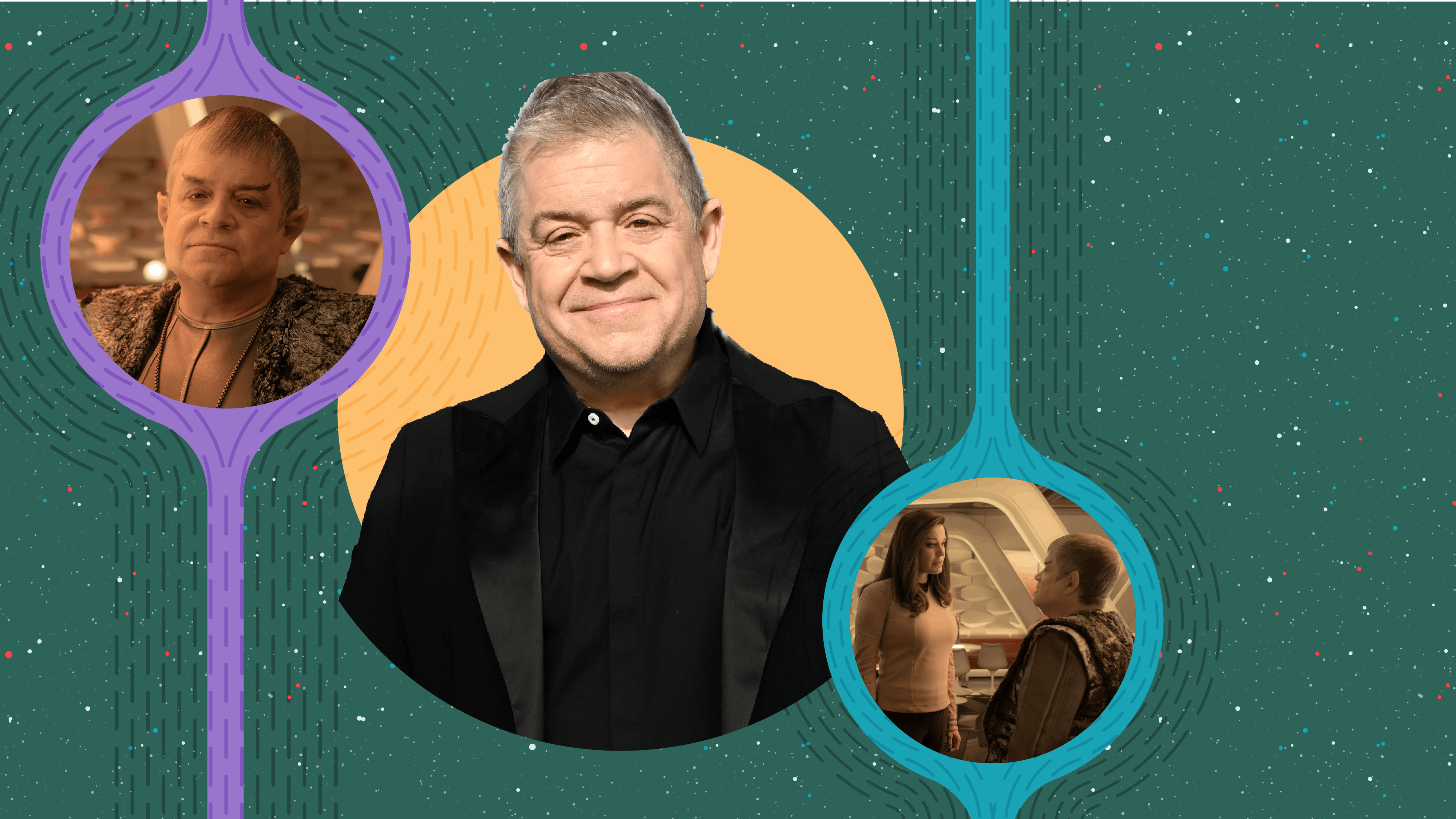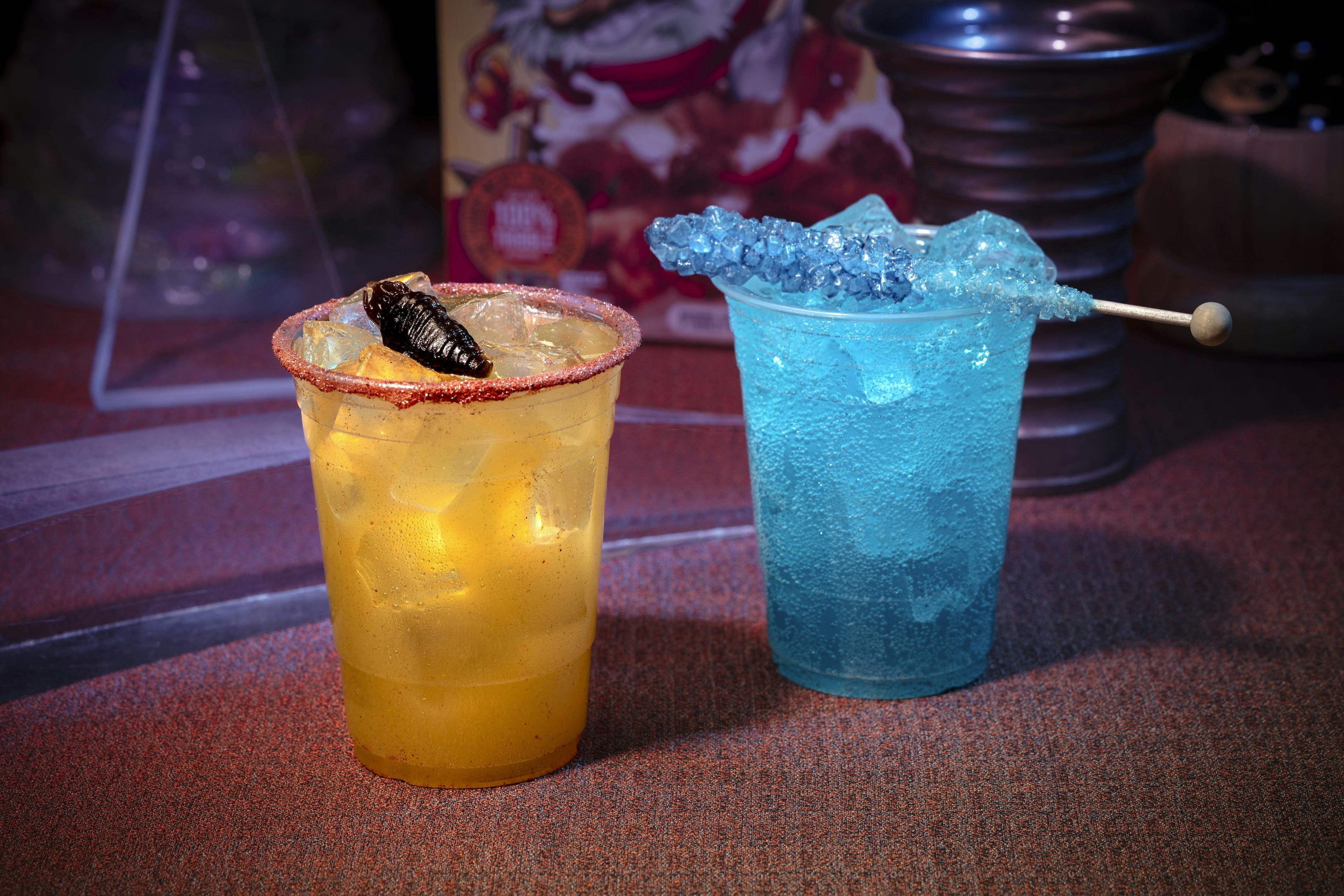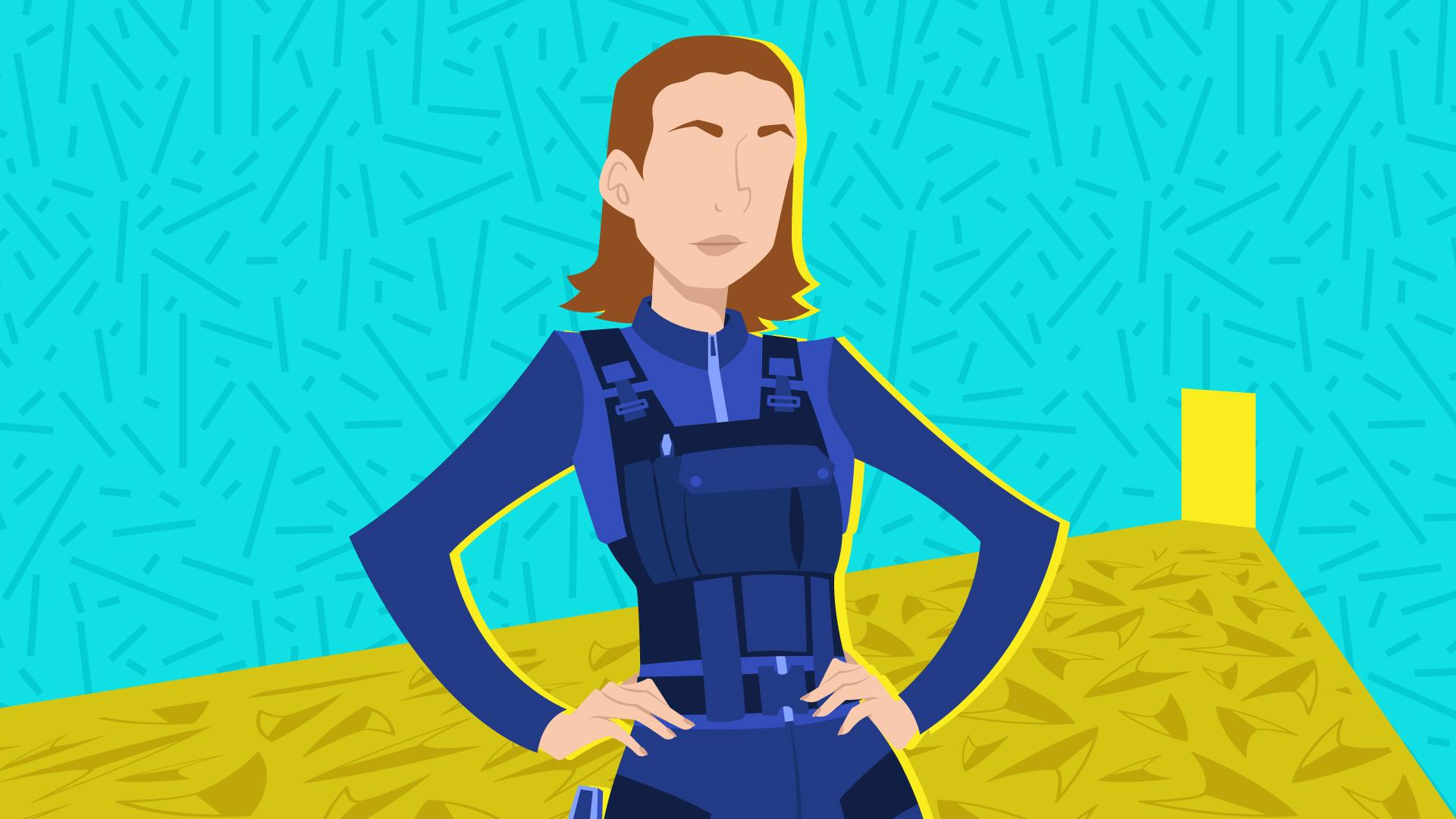Published Jul 19, 2024
WARP FIVE: Robert Picardo Gives His Prognosis on The Doctor's Return
The Star Trek legacy actor sheds light on his Star Trek: Prodigy Season 2 role and more!
SPOILER WARNING: This interview contains story details and plot points for the second season of Star Trek: Prodigy.
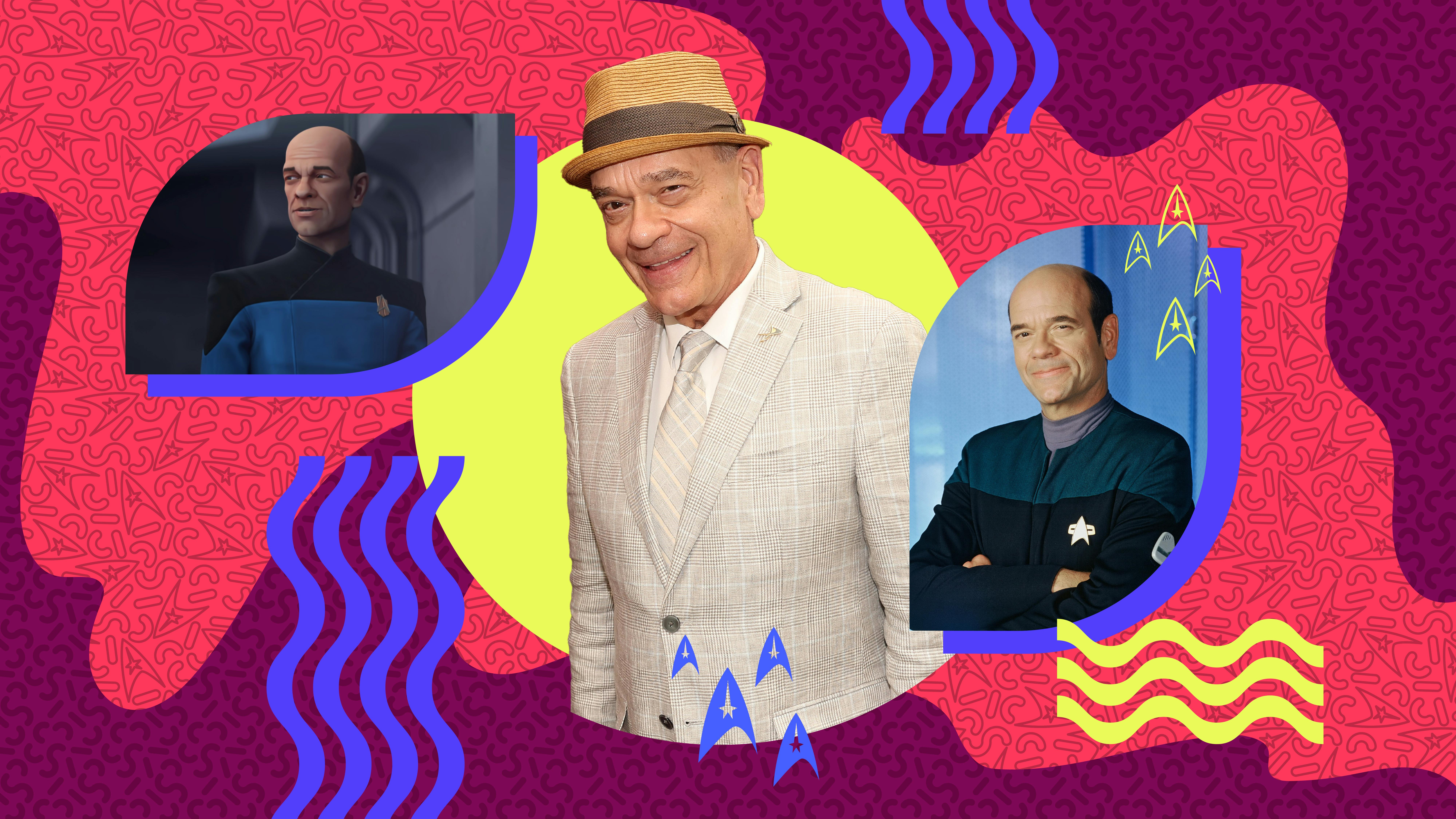
Getty Images / StarTrek.com
Welcome to Warp Five, StarTrek.com's five question post-mortem with your favorite featured talent from the latest Star Trek episodes.
At the end of the first season of , our ragtag group of Starfleet hopefuls lost their mentor and friend, Hologram Janeway, when she sacrificed herself in a move to ensure they had a head start in putting distance between their getaway shuttle and the U.S.S. Protostar that had to self-destruct with the Living Construct onboard.
Without Holo-Janeway, the series' creators and executive producers —The Doctor — to guide and mentor the Prodigy crew as they join Admiral Janeway on the U.S.S. Voyager-A this season.
StarTrek.com had the opportunity to sit down with Robert Picardo to talk about returning to the fan-favorite Star Trek role, being a part of Prodigy, introducing a new generation to Voyager, his personal tips for anxiety, and more!
On Spending 30 Years with The Doctor

StarTrek.com
Robert Picardo has been part of the Star Trek universe since January 1995, nearly 30 years ago, when first aired with its premiere episode, "The Caretaker."
Commenting on that, Picardo shares, "Obviously, three decades is an impressive amount of time to be associated with any role as an actor. Even though this is the first time I've returned to the character, at least vocally, in a long time, you know, those characters stay with you."
As for his sentiments around The Doctor and Voyager, Picard explains, "First of all, we do personal appearances all over the world. We're constantly seeing clips from episodes. I will get nostalgic about a particular episode, and show my wife say, 'Oh, you know what? There was one where I did such and such, and then I'll sit her down. This is not often, but once or twice a year, I'll say, 'Oh, I should show you the one where I battled the giant linguini monster in '.'"
"It's a wonderful feeling to have, you know, a signature role as an actor that makes you known around the world, but that is a source of interest for the fans everywhere, that they happen to love Star Trek," continues Picardo. "When you join the franchise and they particularly like your character, it's a nice feeling of being welcomed into something larger than yourself, with a history, obviously, that predates my involvement, but that will go on forever after I'm gone."
Picardo's Fondness for The Doctor, His Programming, and His Relevance
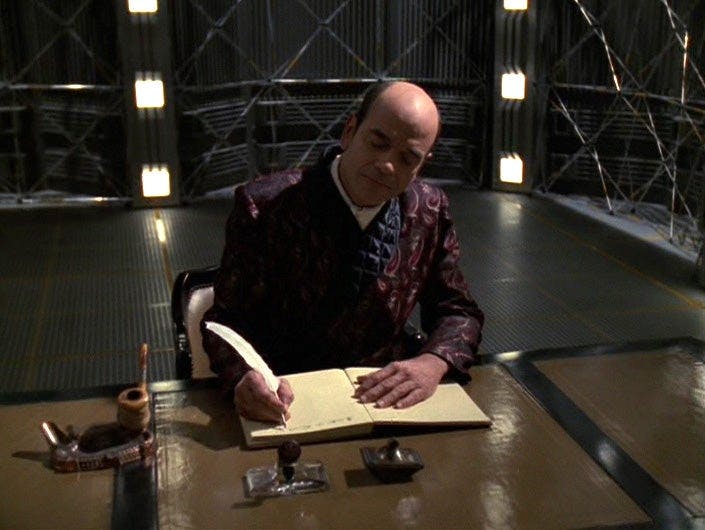
"Author, Author"
StarTrek.com
Fans have been clamoring for the EMH to return for quite some time, and we're thrilled when the , released last summer, gave us a glimpse of The Doctor.
"I thought [the Hagemans] used The Doctor's character very well for humor," reflects Picardo. "It's primarily a show geared toward young people. Most of The Doctor's appearances were humorous. That's not exclusively true. There's a certain amount of drama, obviously, in what happens and trying to rescue the young crew member, and also rescue Chakotay. So there were quite serious and dramatic moments, but I did enjoy the fact that The Doctor's self involvement over his, you know, his wonderful hobbies. We didn't talk too much about opera. It was mostly writing holo-novels."
On the callback to The Doctor's extracurricular activities seen in Voyager's episodes like "" and "," Picardo reveals, "Of course was embedded in The Doctor's journey on Voyager 25 years ago, one of the final seasons when The Doctor writes his first holo-novel, which actually was a writer's joke. You may not know this story. At the time, I had gotten a deal to write a book for Simon & Schuster — a Star Trek book. And it was the satire. It was called 'The Holograms Handbook.' And basically it's, if you're the smartest person in the room, it's how to deal with stupid people, meaning if you're a hologram, an advanced hologram, artificial intelligence, how do you work with mere organics? So it was a self-help book for people of my level of genius."
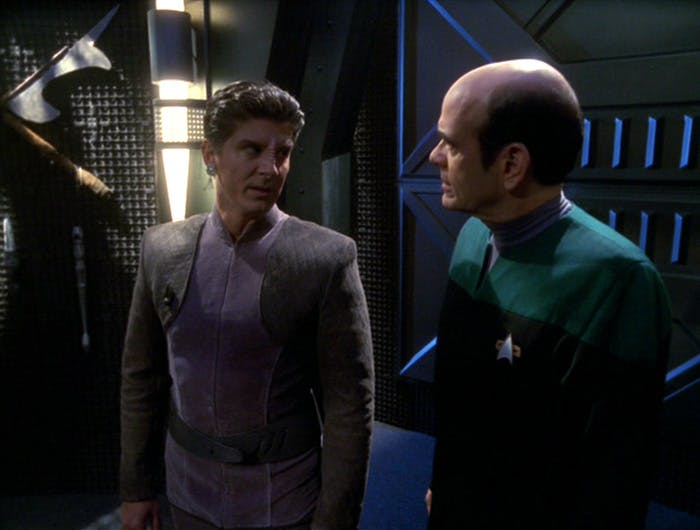
"Flesh and Blood"
StarTrek.com
"So it was a satire, really, of self-help books," adds Picardo. "And it was fun to write, and I collaborated with an actor friend of mine, Jeff Yagher, who had just done a major guest star on a couple of Voyager episodes. In fact, it was his idea because I was explaining to him what holograms could and couldn't do, and because he was playing a rogue hologram in this two-part episode called 'Flesh and Blood.' And he kept asking me questions. I told him, "Well, holograms, we can change our [structure], or whether objects can pass through him. The Doctor has control over whether he has density.' And he responded, 'You should write a book.'"
"And I went, and then of course when Brandon Bragga, our showrunner, found out The Doctor was writing a book, he wrote an episode of The Doctor writing a book," Picardo continues. "I like to think that whole theme came from my personal life, The Doctor being taking an interest in being a novelist, and in Prodigy, there were lots of fun jokes about The Doctor's humorous self-absorption. That was what was fun to play about the character back then. And also carrying on in Prodigy is that he's his own biggest fan. And when he warms to his topic, when his topic is himself, he's kind of delightfully self-involved and self-congratulatory. And that, I think they played that very nicely to good humorous effect in Prodigy."
On Caring for His Little Protégés and His Friends
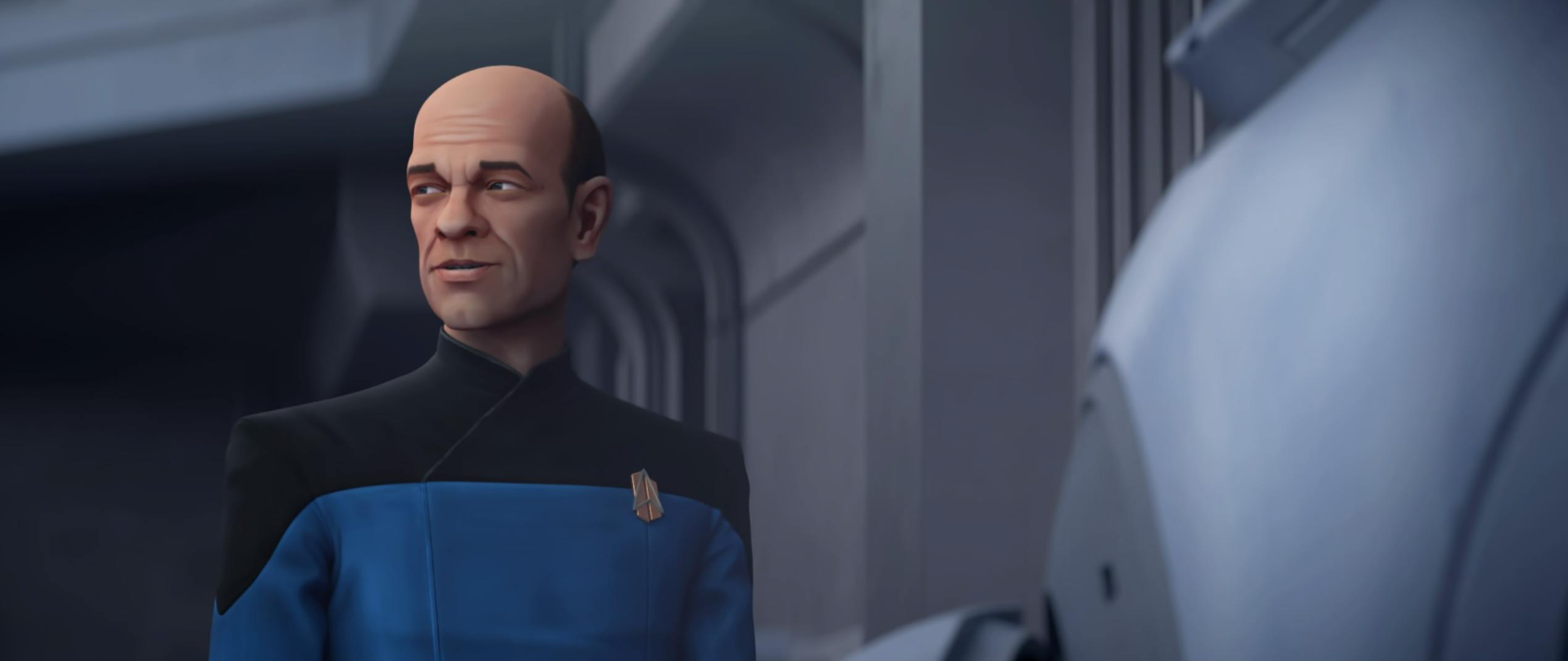
StarTrek.com
When it came to holo-mentors, the Hagemans viewed Holo-Janeway as a sort of Mary Poppins-type character for the Prodigy crew, whereas The Doctor was more of Mr. Belvedere, which took more time for the cadets to warm up to him.
Picardo echoes those sentiments stating, "It's true. In the very opening scene [in 'Into the Breach, Part I'], he chides them telling them, 'I'm a doctor, not a butler.' The kids don't quite get what he's there to help them do, which of course, is to mentor and teach them, and to take responsibility for a lot of their new training, whereas they're treating him like a personal valet."
"The Hagemans are very smart writers," continues Picardo. "I'm sure they were reminding the audience, even unintentionally, they slighted The Doctor's very high self-opinion, and the kids were going to hear about it right away. He's a little prickly, but it's all for comic effect. It sort of recapitulates the journey The Doctor had on Voyager. As the kids get to know him better, and he develops more personal relationships with them individually, they become much closer. The whole fun of The Doctor is that he's not a cuddly, sweet character the way Data was. The Doctor is a curmudgeon, and part of becoming his friend involves a certain amount of flattering him."
The Doctor's care as always extends beyond his charges; it includes his crew. While on the Voyager-A, The Doctor reiterates his advice of growing beyond your programming and never giving up hope to Admiral Janeway.
Picardo credits this to The Doctor and Janeway's longstanding relationship that dates back to when they served on the original Voyager together. "Janeway takes my advice too. When the chips are down, she listens to The Doctor, which echoes back to Voyager. If you recall, Janeway, even though she's a science officer, you would think she would be predisposed to a crew member, to accept a sentient hologram as a full individual, but Janeway was very resistant for many years."
"It really was the episode 'Author, Author,' the one where The Doctor writes a book and where he argues for his own intellectual property rights as an individual that was the linchpin episode where Janeway, I think, finally accepts him," recalls Picardo. "In all the intervening years between Voyager and Prodigy, Janeway now fully trusts The Doctor as a good source of advice. He mostly functions to remind Janeway in crisis of what she already knows."
Picardo's 'Anti-Anxiety for Academy Hopefuls' Advice (or AAAH for Short)
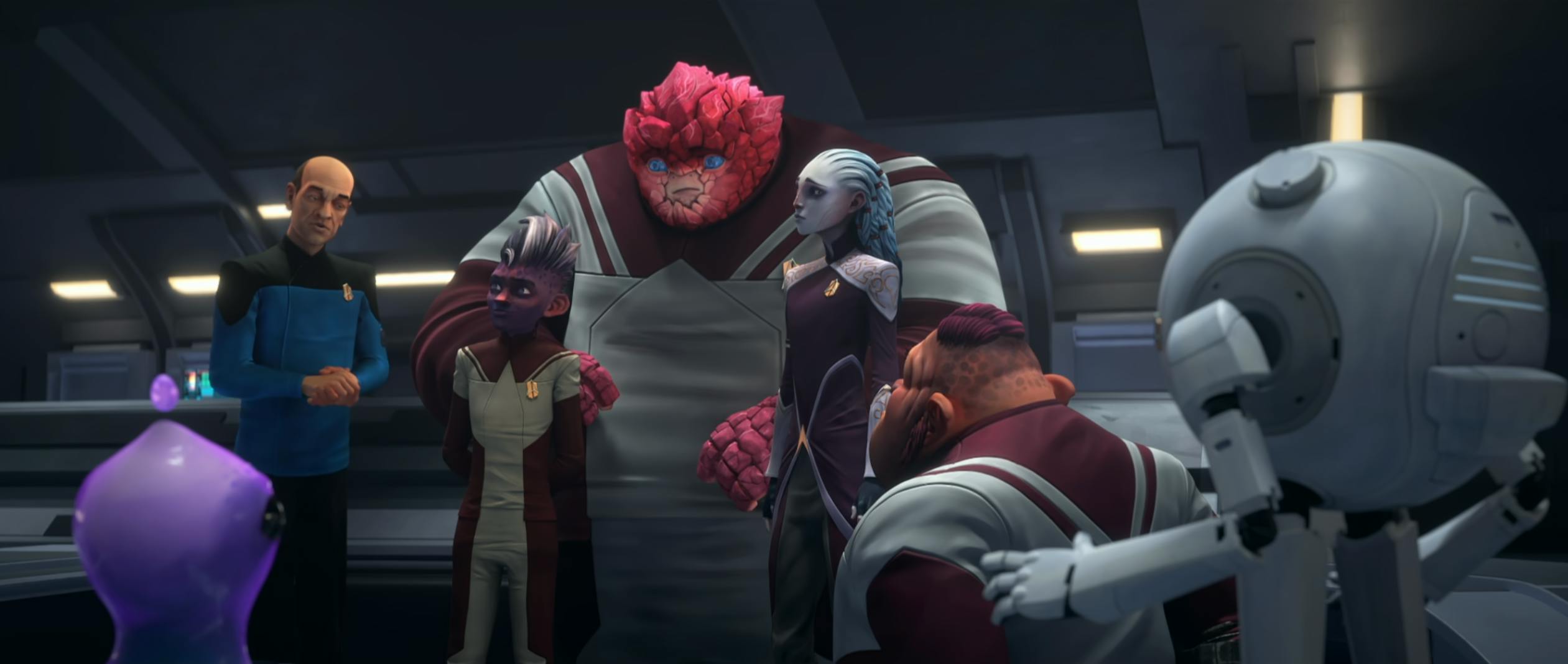
"Observer's Paradox"
StarTrek.com
One of the jokes in the second season is that The Doctor has a 10-Step Anti-Anxiety for Academy Hopefuls program (AAAH for short). We took the opportunity ask Picardo on what his personal advice for Starfleet hopefuls would be.
Picardo details the following:
- "I would say preparation is first and foremost, and I would encourage the reading of Temporal Mechanics 101, which turns out to be very good advice [in the show]. Dal should've read the book; he ends up hearing it from multiple sources other than The Doctor."
- "Obviously, loyalty to your fellow crew members."
- "Also, The Doctor, for an artificial intelligence, has a healthy interest in extracurriculars. He thought it was very important to develop yourself as an individual beyond, in a hologram's case, beyond your original programming."
"Certainly, in the case of the young cadets, to be well-educated, fully-rounded individuals so that they weren't merely focused on one thing, even if that one thing was becoming a Starfleet cadet, which is certainly admirable," explains Picardo. "Part of the journey is to be as well-rounded and as concerned with your fellow cadet hopefuls. You don't want to become this sort of grade-grubbing, mono-maniacal student who will step over everything in his or her path to get their goal. You wanna develop early on that sense of teamwork."

